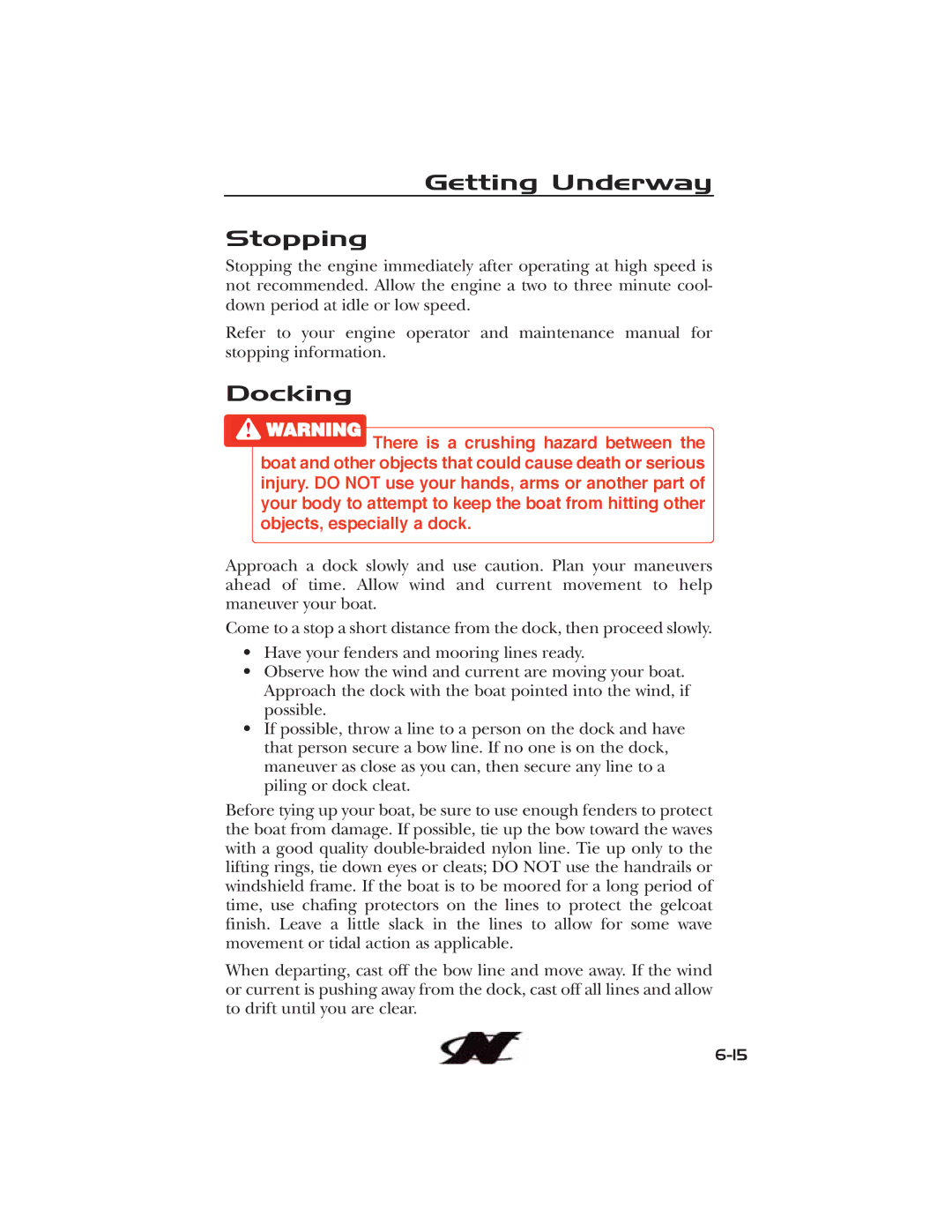
Getting Underway
Stopping
Stopping the engine immediately after operating at high speed is not recommended. Allow the engine a two to three minute cool- down period at idle or low speed.
Refer to your engine operator and maintenance manual for stopping information.
Docking
!
There is a crushing hazard between the boat and other objects that could cause death or serious injury. DO NOT use your hands, arms or another part of your body to attempt to keep the boat from hitting other objects, especially a dock.
Approach a dock slowly and use caution. Plan your maneuvers ahead of time. Allow wind and current movement to help maneuver your boat.
Come to a stop a short distance from the dock, then proceed slowly.
•Have your fenders and mooring lines ready.
•Observe how the wind and current are moving your boat. Approach the dock with the boat pointed into the wind, if possible.
•If possible, throw a line to a person on the dock and have that person secure a bow line. If no one is on the dock, maneuver as close as you can, then secure any line to a piling or dock cleat.
Before tying up your boat, be sure to use enough fenders to protect the boat from damage. If possible, tie up the bow toward the waves with a good quality
When departing, cast off the bow line and move away. If the wind or current is pushing away from the dock, cast off all lines and allow to drift until you are clear.
